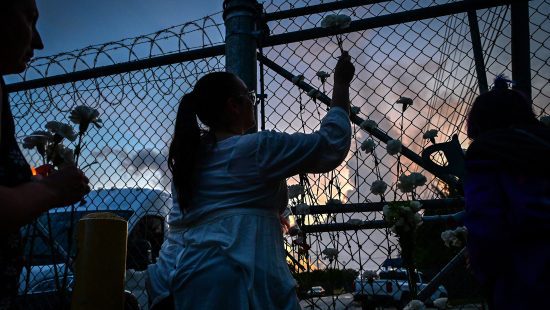People experiencing homelessness in Los Angeles County who contract COVID-19 are more than twice as likely to die than someone in the general population, according to new study by researchers from UCLA, the University of Southern California and Los Angeles County.
The study, published in JAMA Network Open this month, suggests that homelessness is a unique risk factor for COVID-related deaths and that the likely cause is the vulnerability brought on by accelerated aging among the homeless, the researchers said.
“Excess risk of mortality for people experiencing homelessness, versus the general population, was observed across all age groups, among male individuals and female individuals, and among Black, Hispanic and white subpopulations,” said Randall Kuhn, a professor of community health sciences at the UCLA Fielding School of Public Health and a co-author of the research study.
When the pandemic hit, concerns about L.A.’s unsheltered homeless population — the largest in the country — led to a successful call for federal funding to place people in protective housing programs, reduce shelter density, conduct contact tracing for COVI19 and prioritize vaccinations for people who are unhoused. The hope was that the pandemic would have no worse impact among the homeless than among the general population.
Homelessness is linked to a higher risk of death from COVID
Written by
Parriva
— December 19, 2022








